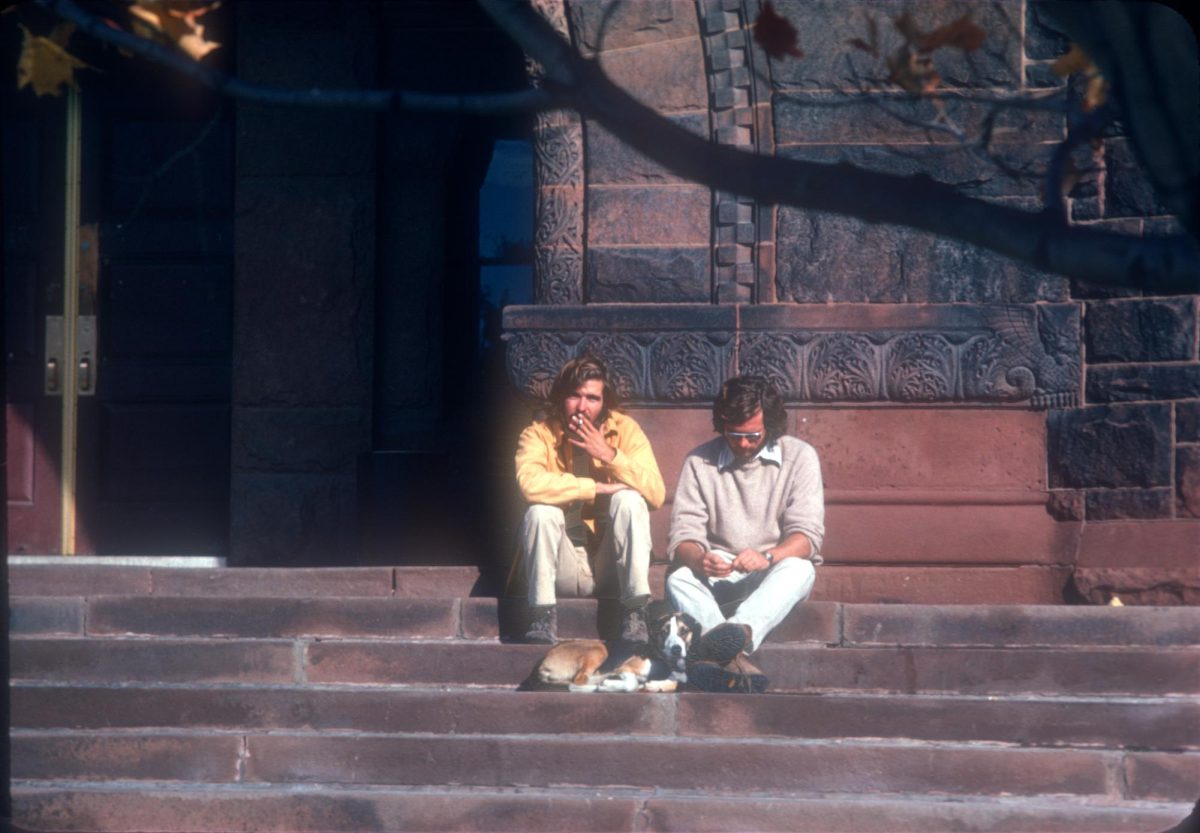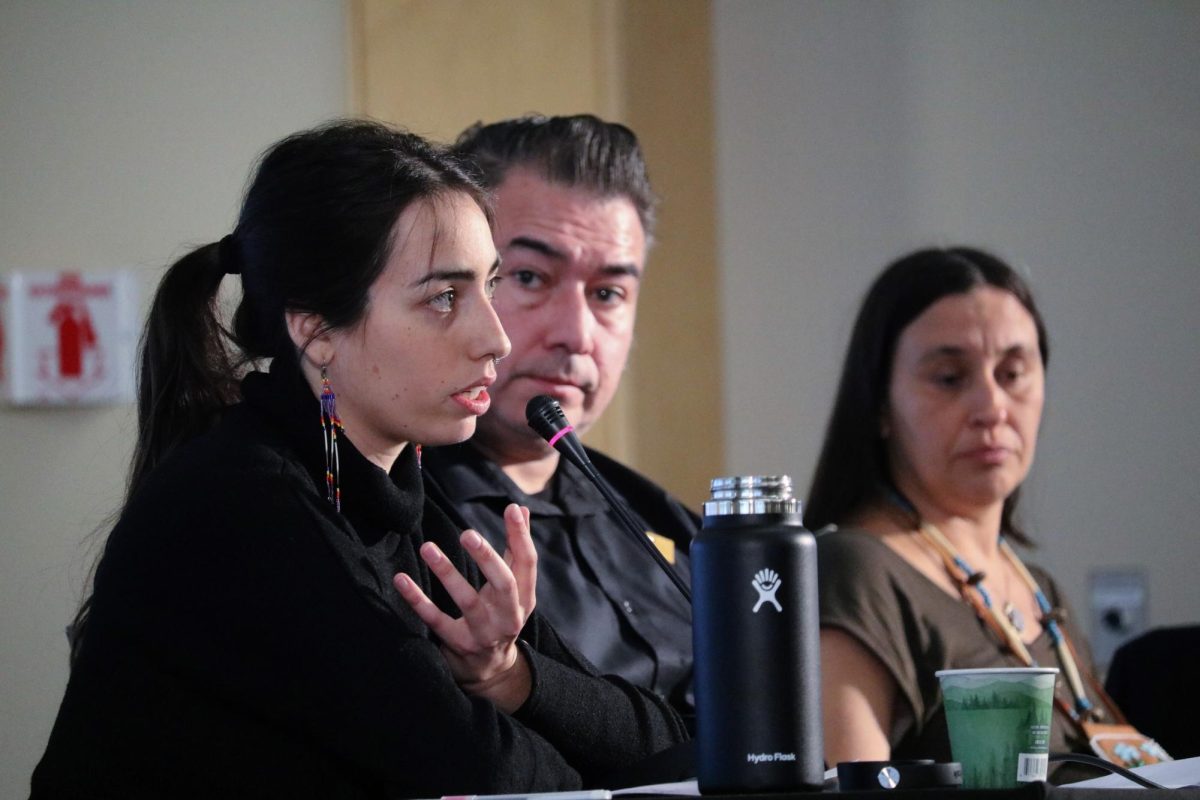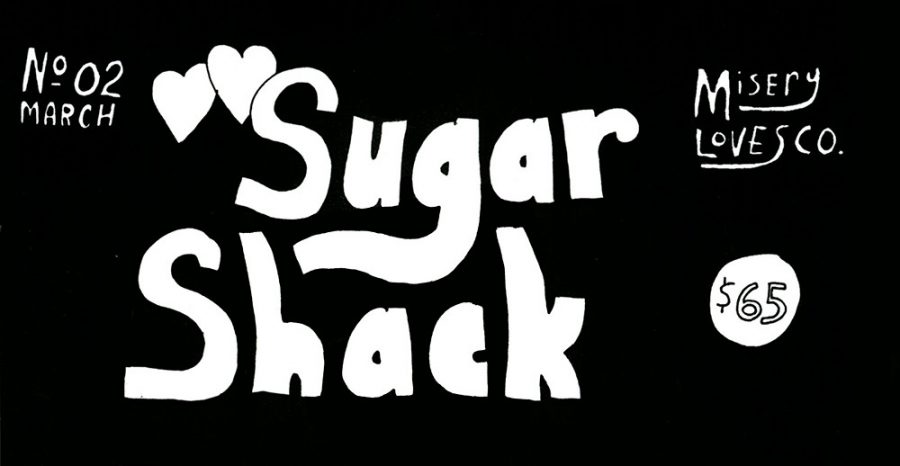Jedi Mind Tricks’ emcee Vinnie Paz is known for the forceful and angry delivery of his violent lyrics. Vinnie always makes sure that the words of any JMT track hit the listener like a Mack Truck. If you want vers??atility and a new sound on each track, you might want to look elsewhere. But, if you like enraged and energetic delivery, then Vinne Paz is your kind of emcee. Raspy-voiced, rugged, and ready to try and slay any beat that group-mate/producer Stoupe slides his way, Vinnie Paz is ready for war. The question is, in releasing another album barely a year after his last project, is Vinnie ready for more? With Legacy of Blood coming out so soon after the release of 2003’s Visions of Gandhi, the listener might wonder if emcee Vinnie Paz and producer Stoupe really had enough time to put together another album that truly reflects the full extent of their talent. This time around, the group decided to record the album in Vinnie and Stoupe’s native Philly, which meant that the two of them did not have to travel to a New York City studio every time a creative impulse struck them. Stoupe apparently had no trouble banging out track after track of brilliant, interesting, and innovative music. The ability to record in Philly allowed Vinnie Paz to hear one of Stoupe’s masterpieces and sit down on to write his rhymes in the same day. The haste with which he wrote many of these songs is evident in weak lyrics like “that’s what I’m here for, the reason why I’m drinking all this f—ing beer for.” After hearing the abovementioned lyrics in the first song of the album, the listener wonders if Stoupe’s exceptional work at the production boards will keep Vinnie’s hurried writing from spoiling the record. Many of the listeners’ doubts are alleviated on track three, titled “Scars of the Crucifix.” The song is lyrically one of the strongest tracks of the album, and is full of lines like “My appetite for blood is crucially insatiable, and I’m a righteous thug that’s brutally defacing you.” Stoupe brings his best to the table, creating an eerie beat with creepy samples, and a foreboding bass-line, all of which work well with Vinnie’s morbidly violent lyrics. On “Saviorself,” which features Wu-Tang affiliate Killah Priest, Vinnie Paz comes forward with some heavily academic subject matter as he delivers rhymes full of esoteric references to the Old Testament and the history of the Biblical Israel. “Saviorself” is one of the true gems of Legacy of Blood. The sonically dominant element of the beat is the Spanish classical guitar used throughout the track. The mellow and melodic production on “Saviorself” is simply exceptional. Good scratching and well-chosen samples perfectly blend the classical Spanish and hip-hop elements of the beat together. Legacy of Blood is a remarkably well-produced album. The vivid and wildly eclectic and interesting soundscapes that Stoupe creates serve to draw the listener into each track. The album contains a variety of raw, rugged, and gritty beats as well as a selection of beautifully produced genre-bending tracks. “Gales of Pain,” which features Sean Price, is a great example of a fight-starting track with an ominous bass-line and an all around mean sound. “And so it Burns” somehow perfectly blends the complicated and uplifting sounds of a full classical orchestra with a good bass-line and clean scratches and samples. On “And so it Burns,” classical music works perfectly with a beat that still retains a very old-school rap feel. Some tracks are fast-paced with foot-stomping bass-lines and a violent and angry sound. Other songs are relaxing and mellow. Despite the wide variety of instrumentals, Stoupe’s carefully placed transitional interludes, which showcase his mastery of his production skills, serve to bring the album together and make it a strong, cohesive unit rather than a collection of individually great songs. Legacy of Blood is musically a very interesting album. The final verdict is that it is Stoupe’s beats which make the album worth listening to. Even though his delivery gets repetitive and he does kick more than his fair share of weak rhymes, Vinnie Paz deserves credit for flowing so well over Stoupe’s intricate beats. Legacy of Blood will not appeal to every hip-hop fan out there. But, the morbid and violent songs of Jedi Mind Tricks were probably never designed to appeal to more than a select few. Jedi Mind Tricks fans will be happy with the new release. The unquestionably hard-core, yet melodic, classical music-influenced sound of the typical Jedi Mind Tricks track is retained on the new album. The creepy samples from movies, the references to crime, sickening violence, and religion are all here. If you are already a fan, you will not be disappointed with Jedi Mind Tricks latest effort. Legacy of Blood is musically brilliant. Even if his lyrics are not always top-notch, Vinnie Paz is good at what he does, and his angry sound and energetic flow work very well with Stoupe’s beats. Legacy of Blood might not be perfect, but it is still a very interesting album to listen to. If you really want to see Stoupe’s instrumentals done justice by a more accomplished emcee, pick up the Canibus/Stoupe collaborative album called Rip the Jacker as well. Both albums can be purchased at Burlington’s best local record store, Pure Pop.
Off the Record:
Off The Record
7L and Esoteric have been big players in the Boston hip-hop scene since the summer of 2000 release of the Speaking Real Words EP. The duo’s blend of 7L’s high quality eclectic production and creative use of samples combined with Esoteric’s innovative delivery of perfectly on-beat complicated polysyllabic rhymes was an immediate hit with local fans.
From the beginning 7LES was respected within the industry and has recorded tracks with Jedi Mind Tricks, and Inspectah Deck from Wu-Tang among others.
Both Jay-Z and Eminem have freestyled over some of 7L’s beats Hot 97 New York’s morning show. As a fan, it has been interesting to watch the groups sound evolve over the years. True to his name, the group’s emcee often wrote rhymes about esoteric subject matter.
Even if Esoteric often strayed from the mainstream and wrote battle raps laden difficult vocabulary and some scientific subject matter, his flow was always dead-on and he ate up any beat that 7L tossed his way.
Fast-forward to Summer 2004 to the release of 7L and Esoteric’s third full length album DC2: Bars of Death. 7LES has evolved, but it has only gotten better with time. Each member of the group has mastered his game. 7L has succeeded in making one of the best produced albums of the year. Bars of Death is replete production gems and tracks laced with piano and flute melodies.
The album is a varied but cohesive sonic sound-scape which carries the listener along for the ride between the different feel of each track. Bars of Death showcases Esoteric’s improvement and evolution as an emcee. Eso puts his surgeon-like control of his word-choice and delivery to new uses on the album while experimenting with narrative concept tracks and introspective looks at his own life.
Bars of Death opens with a short instrumental introduction which brings the listener into the album with frenzied sounds of an orchestral string ensemble.
The sense of anticipation grows as the beat drops and song two, called “Ring Music” begins. This time 7L taps into the energy of rock and roll guitar riffs and percussion as Esoteric chants “Rock, rock, rock with me y’all.” After the hook, the beat shifts into a slower, more bare bones, drum beat backed up by guitar solos.
The best part of the song is how dynamic it is and how Esoteric changes his flow and energy level perfectly as the beat slows down and speeds up. The CD then transitions into “Loud and Clear” which is another fantastically produced track.
“Loud and Clear” is a working-man’s anthem and a polemical attack on George Bush and the current state of the U.S. and American politics. The song is the first time Esoteric deals with political issues, but with the 2004 election approaching, it seems he could not keep his anger to himself. Aside from having a great message, the song is simply good music. Eso drops some quotable lines such as “the only right-winger I support is Cam Neely.”
Then on “Rise of the Rebel,” over a melodic piano laced beat, Esoteric gives listeners a look into his personal history and how he first began rhyming and the problems he encountered in his life along the way.
“Rise of the Rebel” is followed up by “Rogue Nation” and “This is War” both of which are solid tracks.
“This is War” teams Eso up with fellow Babygrande label-mate Vinnie Paz from Jedi Mind Tricks as well as Army of the Pharoahe’s members Outerspace, and King Syze.
The next track “Graphic Violence” is one of my favorites. Over a menacing beat, Esoteric narrates a dark and violent story of video-game inspired violence. Esoteric switches up his flow and brings out a sense of urgency and adds a hardened edge to his voice and effectively pulls off the creative concept track.
On the following track, “Neverending Saga” Esoteric switches up his flow again and teams up with J-Zone in a classic hardcore yet bouncy underground hip-hop track.
After “Grace of God” Eso collaborates with the Rubix Cuban aka Celph Titled on the violent battle-track “Murder-Death-Kill.” This song shows Esoteric at his finest, his control of the English language, meter, and his voice is perfected to the point where his rhymes seem to be a part of the beat rather than an additive element.
“Battlefield” has Esoteric talking about hip-hop, his recent battles with other emcees, and is all-around a solid track.
“Touchy Subject” pairs Eso up with Boston black panther Uno the Prophet to discuss racial issues relating to hip-hop. The ideas discussed are interesting but musically the track is somewhat of a disappointment.
After another solid track called “Deathgrip” the album moves into one of the all-around most creative songs I’ve ever heard. Esoteric flips the concept used by Nas in “I Gave You Power.”
While Nas’s song gives listeners a first-person perspective on life from the point of view of a gun, Eso says that if by the end of the song “you’re still thinking [he’s] a burner, you must be a slow learner.” Throughout the song Esoteric makes you think that he is speaking from the point of view of a gun. But a listener with a discerning ear will find that he is actually talking about the American Flag.
He’s “been killing since he had thirteen stars, doing a life bid behind thirteen bars.” In the song Eso says “you can find me street and sky, unless people die, then I stay low- out the people’s eye.” The song cleverly reflects on what the symbol of the Red, White, and Blue has come to mean in the world.
The next track, “Way of the Gun” is one of the only songs on the album that I don’t like. Eso brings his finest to the table doing a throwback track reminiscent of the work he was doing five years ago. The song is brought down by weak verses from Apathy and Celph Titled.
On “Another Way Out” Eso says his “whole country wants to fight in the war, but [he’s] more like Michael Moore, writing the score.” Over a more mellow and sad beat Esoteric delivers rhymes filled with emotion on various subjects and has more than his fair share of ingenious lines and clever metaphors.
The CD closes with Eso trading lines with Dorchester denizen KT on “That’s Right.” The song is a laid-back track that has Eso and KT spitting mellow but arrogant verses. The CD has two hidden tracks at the end, and is interlaced with short instrumental tracks where 7L gives listeners a taste of his finest work at the production boards.
All-around, DC2: Bars of Death is a solid album. It has a weak track or two on it, but it gets my vote for album of the year. One of the most important things in hip-hop is the relationship between the producer and the emcee and few groups have it dialed in like 7L and Esoteric.
7L’s beats, cuts, scratches and samples provide an ample springboard from which Esoteric can jump into action with his tried-and-true delivery and ever-improving microphone skills. It isn’t just a matter of how good 7L’s beats are, or how good Esoteric’s flow is, it’s a matter of how good they are together.
This CD is the best album ever to come out of the Boston hip-hop scene and cements Esoteric into his position as one of the most slept on but best lyricists in the game.
If you like raw, rugged, underground rap, or you just like Eso’s politics, this album makes a worthy addition to any record collection. Support a great hip-hop act and a local record store and pick DC2: Bars of Death up at Pure Pop records in downtown Burlington.





















